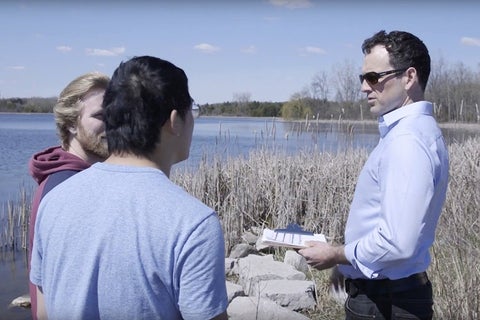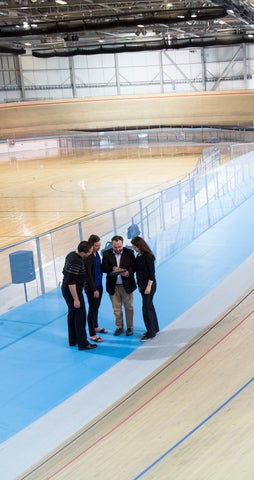Improving lives through graduate research in recreation and leisure
The Master of Arts degree program in Recreation and Leisure Studies offers the opportunity to study leisure and leisure behaviour from a variety of social science perspectives.
Students learn to conduct independent scholarly research of high calibre through their coursework (usually completed during the first year of study) and a thesis (normally completed during the second year of study under the supervision of a faculty member).

Program overview
The thesis-based Master of Arts in Recreation of Leisure Studies is designed to:
- increase knowledge of the theories and concepts of leisure and the contributions by the social sciences and humanities to the field
- develop and strengthen research competencies including the use of research methods and designs in problem solving, hypothesis testing and theory development
- increase understanding of the importance of the applications of theories, methods, and models associated with leisure in contemporary society
The MA program is intended for students who have demonstrated strong academic abilities at the undergraduate level. While there is a blend of applied and scholarly approaches, there is a strong emphasis on the ability to conceptualize and conduct independent research of high calibre.
Areas of study
By combining theory and practice, we are deepening our understanding of the positive and negative aspects of leisure and developing new ways to enhance quality of life for individuals, families and communities.
Our faculty members are active scholars recognized for the high quality and quantity of their published work, in a variety of areas in the field including:

Format
- Research-based | On campus*
- 6 terms | 2 years (full-time)
- 12 terms | 4 years (part-time)
- Thesis
Students complete five courses and prepare their MA thesis by:
- defending their proposal idea to their faculty supervisor and minimum one committee member
- seeking research ethics approval for their planned research
- preparing and defending their final thesis to their faculty supervisor, committee member, independent reader, and thesis defence chair
Degree requirements | Course descriptions
Finding a graduate supervisor
-
Applicants will be asked to identify a faculty supervisor on their application.
- Review faculty profiles above to learn about research activity and expertise. Prior to applying, reach out to potential supervisors to inquire about whether they are accepting new students to supervise and discuss research interests.
- Admitted students are assigned a graduate supervisor who will assist with matters relating to their program of study. Should a student’s interests change during their studies, the Department of Recreation and Leisure Studies will work to support them in finding a new supervisor.
Funding and awards
The Department of Recreation and Leisure Studies offers competitive funding for our graduate students. Financial support is available from many sources: graduate research studentships from supervisors' grants, teaching assistantships, federal and provincial government scholarships, institutional scholarships, bursaries, and loans provided by the government of Ontario.
Graduate student resources
Application deadline: February 1
Applications submitted after this date will be considered on a rolling basis until all available spots are filled.
Considerations for international students before submitting an application:
- While the Faculty of Health at the University of Waterloo values international students in our graduate programs, we can only accept a small proportion of these students.
- Guaranteed funding packages may not be able to cover all tuition and living expenses incurred during a graduate program and students are encouraged to understand more about the cost of completing their graduate program before applying.